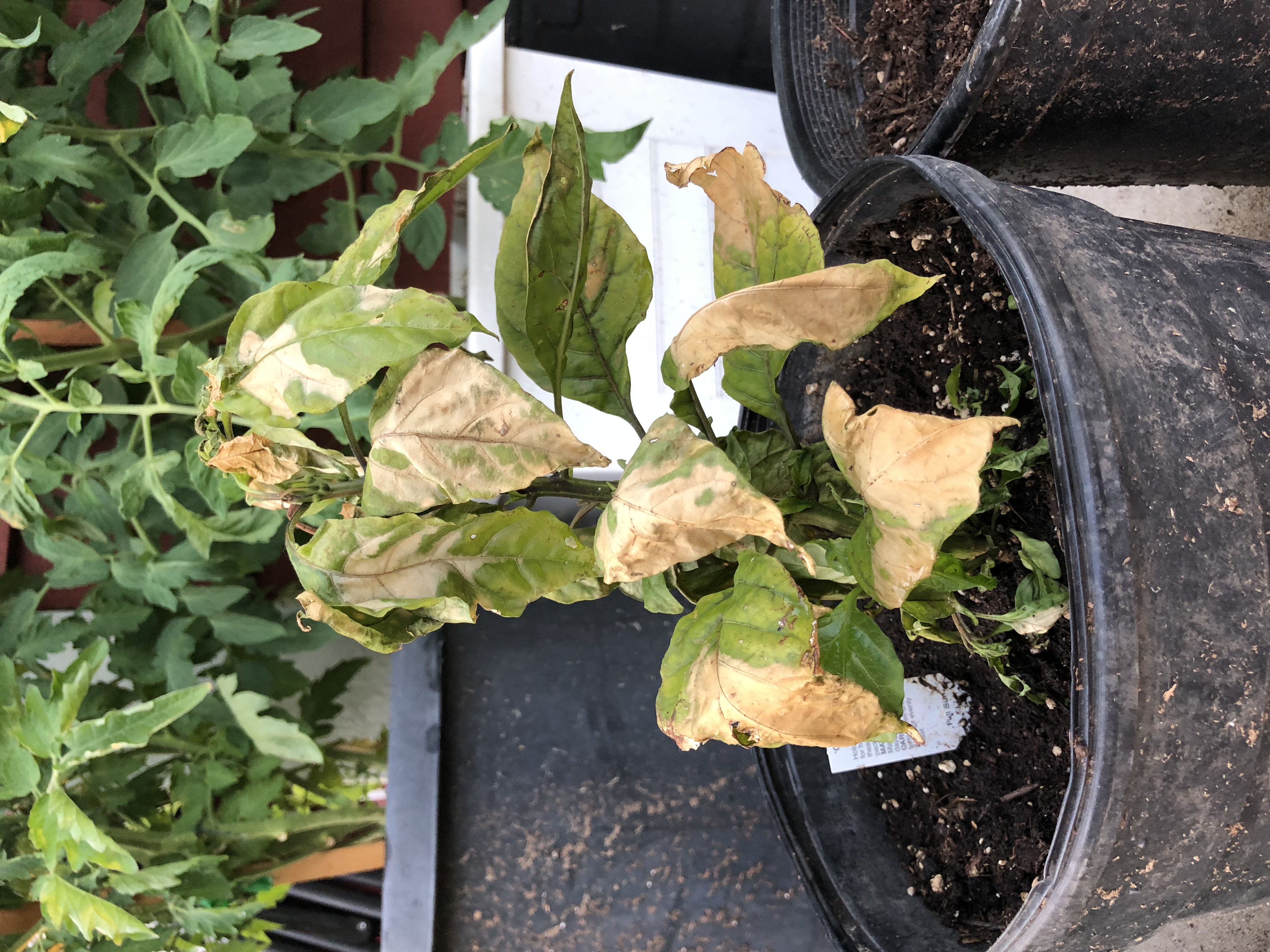Best Fertilizers for Peppers: Take Full Advantage Of Plant Health and Yield
Best Fertilizers for Peppers: Take Full Advantage Of Plant Health and Yield
Blog Article
Organic Vs. Synthetic Fertilizers: Which Is Best for Nurturing Healthy Pepper Plants?
In the world of nurturing healthy and balanced pepper plants, the choice between natural and synthetic fertilizers stands as an essential decision with far-reaching implications. While both choices goal to supply necessary nutrients to sustain plant growth, the nuances of their effect on the soil, plant health, and the environment spark an argument that mirrors throughout the horticulture neighborhood. Recognizing the unique advantages and potential risks of each plant food kind is important for pepper farmers seeking to enhance their returns while preserving an eco-conscious and lasting technique.
Advantages of Organic Fertilizers
Organic fertilizers use an environmentally-friendly and lasting technique to nourishing pepper plants, offering vital nutrients without the usage of synthetic chemicals. These natural fertilizers are obtained from organic resources such as compost, manure, bone meal, and seaweed, advertising dirt wellness and biodiversity. Unlike artificial plant foods, organic options release nutrients slowly, making certain a stable and balanced supply for pepper plants to prosper.
One considerable advantage of natural fertilizers is their ability to boost dirt framework and water retention. By boosting dirt health and wellness, organic fertilizers promote useful microbial task, which helps in nutrient uptake by pepper plants. Furthermore, natural fertilizers decrease the risk of chemical run-off, securing water resources from pollution and protecting the setting.
In addition, organic fertilizers add to lasting dirt fertility by promoting the development of advantageous soil microorganisms. These microorganisms help damage down organic matter, launching nutrients in a form that is quickly obtainable to pepper plants. best fertilizers for peppers. By promoting a healthy and balanced soil ecological community, organic fertilizers support lasting pepper cultivation techniques that profit both plants and the setting
Drawbacks of Artificial Plant Foods
Artificial fertilizers, in comparison to their natural counterparts, posture various negative aspects when used to nourish pepper plants, influencing both plant health and environmental sustainability. One major downside of synthetic plant foods is their propensity to seep nutrients from the dirt swiftly. This rapid leaching can bring about nutrition discrepancies in the soil, creating plants to endure from shortages or poisonings. Additionally, synthetic plant foods can harm beneficial dirt organisms, such as earthworms and valuable bacteria, disrupting the dirt ecological community's balance.
Furthermore, the overuse of synthetic plant foods can contribute to water pollution. Excess plant foods not taken in by plants can wash away right into water bodies, resulting in eutrophication, where algae blossoms diminish oxygen levels in the water, hurting aquatic life. In addition, artificial fertilizers are generally derived from non-renewable sources, such as fossil fuels, adding to carbon discharges and environmental destruction throughout their production.
Nutrient Absorption Comparison
When contrasting natural and synthetic fertilizers in terms of nutrient absorption, natural plant foods have the advantage of offering a much more balanced and slow-release resource of nutrients. Organic plant foods contain a selection of macro and trace elements that are not just valuable for the plants yet also advertise healthy dirt microbial task, which helps in nutrient uptake.
Additionally, natural fertilizers boost soil framework and water retention capacity, enabling pepper plants to access nutrients a lot more successfully. This improved dirt quality assists in origin advancement, enabling better nutrient absorption. Artificial plant foods, although originally enhancing plant development as a result of their high nutrient focus, might impede long-lasting nutrient absorption by derogatory dirt health and wellness over time.
Environmental Impact Considerations

On the other hand, synthetic fertilizers, although often even more quickly readily available and focused to plants, can have damaging effects on the environment otherwise applied correctly (best fertilizers for peppers). Their production requires high power inputs, causing greenhouse gas emissions and contributing to climate adjustment. In addition, the overflow of excess artificial fertilizers can contaminate water resources, causing eutrophication and click to investigate harming aquatic ecosystems.
Finest Plant Food Practices for Peppers
When fertilizing pepper plants, maximizing nutrient uptake and reducing ecological impact are vital considerations. To achieve this, it is important to comply with best fertilizer techniques tailored to the certain needs of pepper plants. One vital method is to execute a soil examination before applying any type of plant foods. This test can figure out the pH level of the soil and determine any kind of nutrient deficiencies, leading you in picking one of the most ideal fertilizer solution.
Another important technique is to feed pepper plants at the appropriate time. Typically, peppers take advantage of obtaining plant food at planting and then again when they begin to blossom. Over-fertilizing can cause vitamins and mineral inequalities and damage the plants, so it is crucial to comply with suggested application rates.
Additionally, choosing a well balanced plant food with an NPK ratio that fits pepper plants' requirements is fundamental. Organic plant foods, such as garden compost or manure, can be exceptional options as they release nutrients slowly and boost soil structure over time. Nonetheless, synthetic fertilizers can give a quick nutrient increase when needed. Eventually, combining artificial and organic plant foods judiciously can aid nurture healthy and balanced pepper plants while reducing ecological effect.
Conclusion

Organic fertilizers supply a sustainable and environmentally-friendly technique to nourishing pepper plants, supplying important nutrients without the usage of artificial chemicals. Unlike synthetic plant foods, natural choices launch nutrients slowly, ensuring a balanced and consistent supply for pepper plants to grow.
Synthetic plant foods, in comparison to their natural counterparts, present numerous drawbacks when made use of to nourish pepper plants, impacting both plant health and wellness and ecological sustainability. When comparing organic and artificial plant foods in terms of nutrient absorption, organic plant foods have the advantage of supplying an extra well balanced and slow-release resource of nutrients.Additionally, organic fertilizers improve dirt framework and water retention ability, allowing pepper plants to access nutrients a lot more successfully.
Report this page